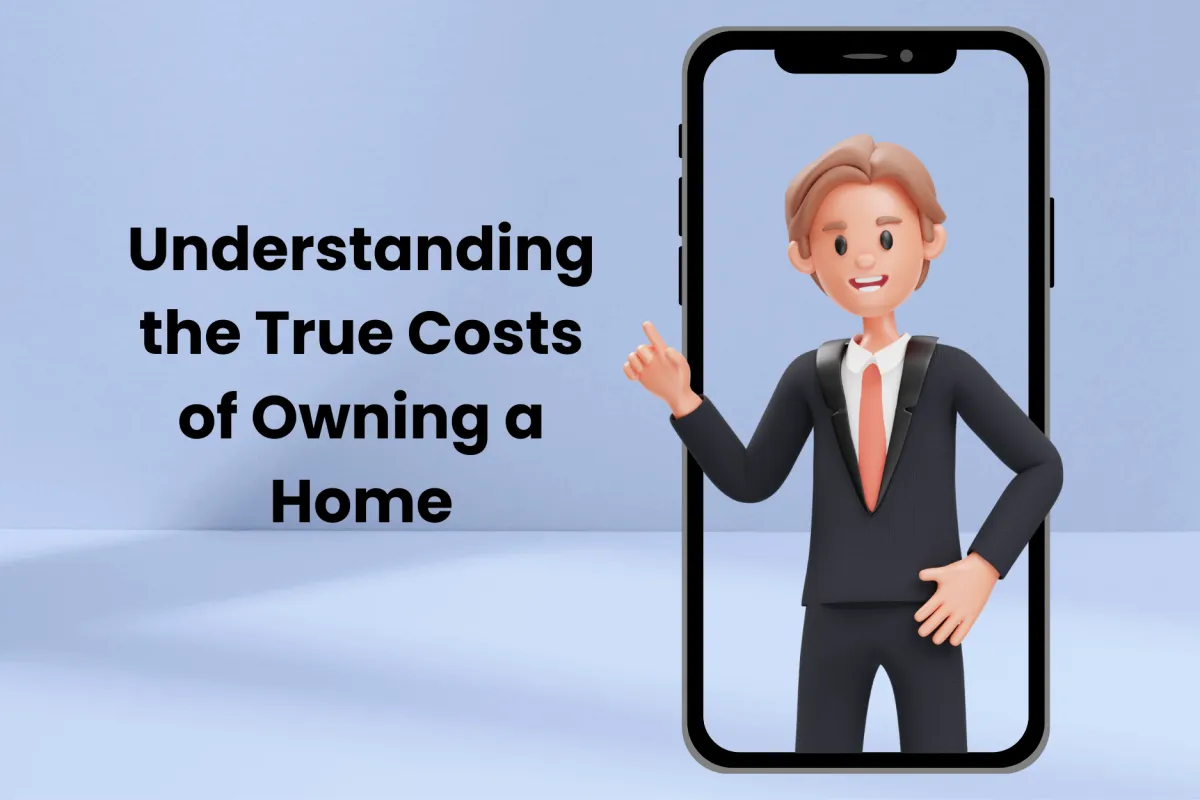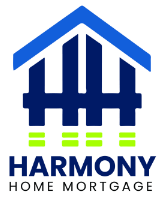
Understanding the True Costs of Owning a Home
Buying a home is more than just securing a mortgage—it’s a long-term financial commitment that comes with ongoing costs. Too often, I see first-time buyers focus only on the monthly mortgage payment, only to be caught off guard by insurance, taxes, maintenance, and unexpected repairs.
As a mortgage professional with over 12 years of experience, I believe smart homeownership starts with financial preparation. Let’s break down the true costs of owning a home, so you can budget wisely and avoid financial stress after move-in.

1. Your Monthly Mortgage Payment
Your monthly mortgage payment is likely your biggest housing expense. This payment is made up of four key components, often called PITI:
•Principal – The amount you borrowed and are paying back.
•Interest – The cost of borrowing the money, based on your loan’s interest rate.
•Taxes – Property taxes, which vary by location.
•Insurance – Homeowners insurance, and possibly private mortgage insurance (PMI) if your down payment was less than 20%.
How to Estimate Your Mortgage Payment
If you’re still in the planning phase, use a mortgage calculator to estimate your monthly costs based on:
✔️ Loan amount
✔️ Interest rate
✔️ Down payment
✔️ Property tax rates in your area
✔️ Insurance costs
Pro Tip: Property taxes and insurance costs can change over time, so budget for potential increases!

2. Property Taxes: What You Need to Know
Property taxes are set by your local government and are based on your home’s value. These taxes are used to fund schools, roads, and public services in your area.
How Property Taxes Work:
✔️ Typically 1-3% of your home’s value per year (varies by location).
✔️ Paid annually or included in your mortgage escrow payment.
✔️ Can increase over time as your home’s value rises.
Smart Budgeting Tip: Check local property tax rates before you buy so you’re not caught off guard. Some states offer tax exemptions for veterans, seniors, or first-time buyers, so explore potential savings!
3. Homeowners Insurance & Private Mortgage Insurance (PMI)
🔹 Homeowners Insurance – Protects your home from damage, theft, and disasters. Costs vary based on:
✔️ Location (hurricane, flood, or wildfire zones may cost more).
✔️ Home’s age and condition.
✔️ Coverage amount and deductible.
Average cost: $1,000 - $2,500 per year, depending on the home and location.
🔹 Private Mortgage Insurance (PMI) – If you put less than 20% down, most lenders require PMI to protect themselves in case of default.
✔️ PMI typically costs 0.5% to 1% of the loan amount annually.
✔️ Can be removed once you reach 20% home equity.
✔️ VA loans do not require PMI, which is a huge benefit for eligible buyers.
Pro Tip: Shop around for insurance quotes before buying. Bundling homeowners and auto insurance can often save you money!

4. Home Maintenance & Repairs: The Hidden Costs
Homeownership doesn’t stop at your mortgage payment—you’ll also need to budget for maintenance, repairs, and unexpected expenses.
🔹 Ongoing Maintenance Costs:
✔️ HVAC servicing (heating & cooling)
✔️ Lawn care & landscaping
✔️ Plumbing & electrical upkeep
✔️ Roof & foundation inspections
✔️ Pest control
🔹 Major Repairs & Replacement Costs:
✔️ Roof replacement: $5,000 - $15,000
✔️ Water heater: $800 - $3,000
✔️ HVAC system: $3,500 - $10,000
✔️ Appliance repairs/replacement: $500 - $2,500 each
Smart Budgeting Rule:
Set aside 1-3% of your home’s value per year for maintenance and repairs. For a $300,000 home, that’s $3,000 to $9,000 per year.
5. Utilities & HOA Fees
🔹 Monthly Utilities:
Your monthly costs will vary based on the size of your home, location, and energy efficiency.
✔️ Electricity: $75 - $250/month
✔️ Water & Sewer: $40 - $100/month
✔️ Internet & Cable: $50 - $200/month
✔️ Trash & Recycling: $10 - $50/month
🔹 HOA Fees (If Applicable):
If your home is in a condo or planned community, you may have Homeowners Association (HOA) fees.
✔️ HOA fees range from $100 - $500/month depending on amenities.
✔️ Covers community upkeep, landscaping, and shared facilities.
✔️ Some HOAs have special assessments for unexpected expenses.
Pro Tip: Ask about HOA fees and rules before you buy—some communities have strict regulations on renovations, parking, or rentals.

Smart Budgeting for Long-Term Homeownership
Owning a home is an investment, not just an expense. The key to stress-free homeownership is financial preparation—knowing what costs to expect and having a plan to cover them.
✅ Calculate your full monthly payment (not just your mortgage).
✅ Set aside a home maintenance fund (1-3% of home value annually).
✅ Shop around for homeowners insurance and check for discounts.
✅ Understand property taxes and how they may change over time.
Buying a home should be exciting, not overwhelming—and with the right planning, you can enjoy your investment without financial surprises.
Need help figuring out how much home you can afford? Schedule a free mortgage consultation!


